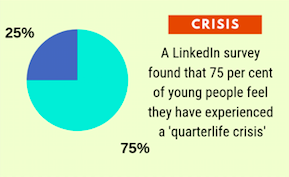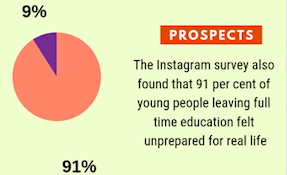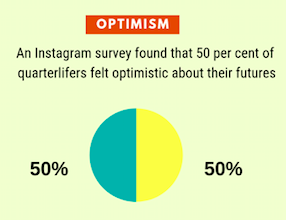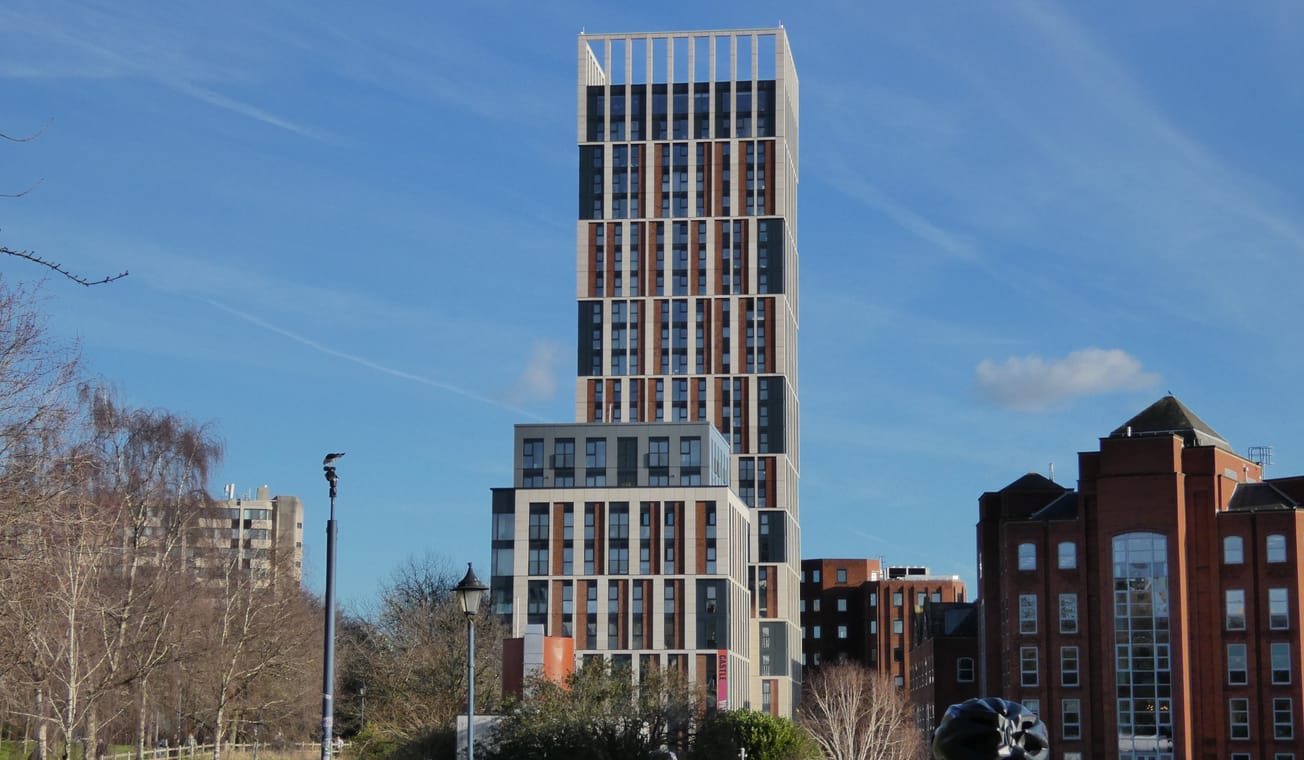By Zoë Crowther, Students’ Union Correspondent
Quarterlife Magazine is a new online platform centred around the realities of graduate life. Zoë Crowther interviews co-founder and former Bristol student Joy Molan.
I first came across Quarterlife when someone shared an article on Facebook titled ‘Why it’s okay not knowing what you want to do after uni.’ I immediately clicked on the link, eager for some reassurance that my own indecisiveness is ‘normal’ and nothing to worry about.
'It can be pretty shocking to realise that you're not as special as you think you are... this is a really demoralising time.'
Joy Molan, co-founder of Quarterlife Magazine
Having set up Quarterlife earlier this year with her colleague and friend Emily Parker, Joy explained the premise behind it: ‘Quarterlife at the moment is an online community. We felt that when we left university there wasn’t really any mainstream publication that was talking about any worries and anxieties that people felt at that time.’

Infographic: Epigram / Tom Taylor
‘Quarterlife’ was a term I was unfamiliar with, and I asked Joy to define it: ‘Personally, I see it as a moment or period of intense anxiety many 20-somethings face, about what they’ve achieved so far in life, their current situation and what they want for their futures. It’s a time when we reassess what we want and if we are likely to achieve it - still aware of the big dreams we had for our adult selves as kids.’
A recent LinkedIn study showed that a ‘quarterlife crisis’ is experienced by 75 per cent of young people, and Quarterlife carried out an Instagram survey which found that only 50 per cent of quarterlifers feel optimistic about their futures and 91 per cent leave full-time education feeling unprepared for real life and work.
Joy offered her thoughts on why this might be the case: ‘You leave the education system and you’re on your own in some ways, you’re separated from your friends. You’ve got all these new pressures and stresses, but all the role models you’re looking up to are usually quite far along in their journey already, and aren’t that relatable.
‘With Quarterlife we want to spotlight people who are a few years down the line, still in their twenties but doing cool stuff. We want to create a bit of a network where people can share how they’re feeling, and share their ideas and learning. Ultimately we want it to be almost like a big sister or a big brother. Our mission is really to create a resource we wish we’d had at that time, straight out of uni in what we call the “lost year.”’
During her time at the University of Bristol, Joy was online founder and editor of That’s What She Said, the Feminist Society’s magazine, as well as writing for Epigram. I asked how her own experience of leaving university inspired Quarterlife:
‘Towards the end of second year you start to get a bit anxious because lots of your friends will be applying to these grad schemes and internships, especially if they’re going for traditional career paths. That can make you feel like “I’m on the backfoot and I’ve not even left uni yet!”

Infographic: Epigram / Tom Taylor
‘That helped me get my act together a bit… I emailed about 25 different ad agencies in London and heard nothing back. Eventually, I got one response which gave me work experience and I was able to make some contacts.
‘But it was really tough and I think it dawned on me that your degree isn’t your passport to your future necessarily. It definitely helps but there’s other things you need as well. It can be pretty shocking to realise that you’re not – to put it bluntly – as special as you think you are… I had to push for more internships and more opportunities. A lot of my friends felt as well that this is a really demoralising time.’
Both Joy and Emily studied English Literature and since Quarterlife is largely based on their own experiences, the content is primarily art-based. Some articles also explore the possibilities of start-up ventures and entering careers which are not necessarily deemed ‘traditional.’
Joy’s emphasis on how young people tend to compare themselves to others was of particular interest to me: ‘Do you think that is has become easier for people to feel inadequate among the huge pool of accomplished students?’
She responded: ‘We’re always so critical of our own progress, and social media definitely accentuates that.’ I agreed, relating my own experience of social media showcasing friends travelling across the world, while I sit in the library agonising over my own lack of adventurousness.
‘That’s how I felt as well! At the click of a button, you can see everybody else’s life that seems so much better than yours - they seem to be progressing faster than you but actually everybody is feeling the same way.
‘I want Quarterlife to be a bit of an antidote to all of that, to show its ok to not know what you want to do, and its ok to be trying and failing to get somewhere straight away.’
'You shouldn't compare yourself to other people and you should recognise that it's a marathon, not a sprint.'
Joy Molan, co-founder of Quarterlife
Joy said she also had the experience of wondering how other people could apparently afford to travel straight after graduating, when she felt that she was restricted by a large accumulation of debt.
‘There’s a lot of jealousy and envy and that can be hard to admit to yourself. But others have their own set of circumstances that are different to yours - maybe they’ve worked and saved up, or come from a wealthier background, but ultimately they’re going to have to deal with the same issues later on. We all do things at different stages and that’s fine.’
A large proportion of articles on the Quarterlife website relate to personal wellbeing, such as ‘Six Commandants for Staying Happy in Your Graduate Job’ and ‘Job Rejections are Soul-crushing, but We’re All in This Together.’

Infographic: Epigram / Tom Taylor
Quarterlife’s Instagram survey showed that 49 per cent of quarterlifers experience a deterioration in their mental health after they leave education. With mental health a constant theme of discussion among the student population, Joy elaborated on why the issue does not disappear once people leave the university bubble:
‘On the one hand, you have more structure at university, you have set goals with grades and dissertations. When you leave university, those goalposts completely change or disappear completely and you kind of have to be happy with knowing when you’ve done a good job and turn to your own self-belief and self-confidence to give you validation when you’re dealing with challenging situations.
‘On the flipside, my experience at Bristol was that there wasn’t a huge support network and I think that what’s contributed to the mental health crisis that Bristol students are currently facing. It’s not like students are getting all the support they need.’
I asked Joy what advice she would give to students who are considering their post-university futures: ‘I thought that when I graduated I was going to have loads of money, that my life was going to be improved in so many ways. As a student I was living on the hope of what the future could be like. I think we should be able to sit back and enjoy the messiness of the present.
‘I guess it really comes down to making the most of your student experience. You shouldn’t compare yourself to other people and you should recognise that it’s a marathon, not a sprint.’
"Fail fast, it's a massive lesson in life" @Paul_Lindley OBE
— Bristol University (@BristolUni) February 21, 2019
What's the best advice you were never given?🤔
The Ella's Kitchen founder, entrepreneur and #BristolGrad gives us the best, and rarest, tips for the business leaders of tomorrow.@EllasKitchenUK #LoveBristolUni pic.twitter.com/AXJ1lqty7f
In regards to who can contribute to Quarterlife, Joy said ‘anyone who has a passion for sharing an experience or story from this life stage. We only launched about a month ago now, but as we bring on more writers who have more diverse experiences we can enrich the kind of subjects we can talk about and the range of advice we can give.
‘Our goal for the future is to try and reach as many young people in this life stage as possible and offer them the support we wish we’d had. We’re learning as we go, figuring out what works best for us and for our audience, and ultimately helping people have a quarterlife better lived.’
Featured Image: Co-founders Joy Molan and Emily Parker / Quarterlife









